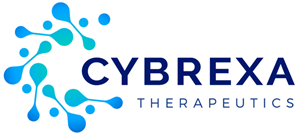Processing Your Payment
Please do not leave this page until complete. This can take a few moments.
-
News
-
Editions
-
- Lists
-
Viewpoints
-
HBJ Events
-
Event Info
- 2024 Economic Outlook Webinar Presented by: NBT Bank
- Best Places to Work in Connecticut 2024
- Top 25 Women In Business Awards 2024
- Connecticut's Family Business Awards 2024
- What's Your Story? A Small Business Giveaway 2024 Presented By: Torrington Savings Bank
- 40 Under Forty Awards 2024
- C-Suite and Lifetime Achievement Awards 2024
- Connecticut's Health Care Heroes Awards 2024
-
-
Business Calendar
-
Custom Content
- News
-
Editions
View Digital Editions
Biweekly Issues
- April 29, 2024
- April 15, 2024
- April 1, 2024
- March 18, 2024
- March 4, 2024
- February 19, 2024
- February 5, 2024
- January 22, 2024
- January 8, 2024
- + More
Special Editions
- Lists
- Viewpoints
-
HBJ Events
Event Info
- View all Events
- 2024 Economic Outlook Webinar Presented by: NBT Bank
- Best Places to Work in Connecticut 2024
- Top 25 Women In Business Awards 2024
- Connecticut's Family Business Awards 2024
- What's Your Story? A Small Business Giveaway 2024 Presented By: Torrington Savings Bank
- 40 Under Forty Awards 2024
- C-Suite and Lifetime Achievement Awards 2024
- Connecticut's Health Care Heroes Awards 2024
Award Honorees
- Business Calendar
- Custom Content
Cybrexa raises $13.4M for first cancer drug trials

A New Haven biotech developing drugs that send cancer-fighting agents directly into tumor cells while sparing healthy tissue said it has raised $13.4 million.
Cybrexa Therapeutics said it will use the Series B1 funding to propel its first cancer drug, CBX-11, into clinical trials by early next year, as well as to advance other drugs that are still in the preclinical stage.
Founded by serial biotech entrepreneurs Per Hellsund, Kevin Didden and Kevin Rakin, the privately-held Science Park-based startup said it has raised $21 million since launching in 2017.
“This level of financial support from our investors demonstrates the continued enthusiasm and validation for our innovative, proprietary [tumor-targeting] technology,” President and CEO Hellsund said in a statement.
Existing investors HighCape Capital Special Opportunities Fund, Cycle Venture Partners and Connecticut Innovations, the state’s venture-capital arm, participated in the most recent funding round, the company said.
Cybrexa is developing a new class of cancer drugs based on the research of Yale physician-scientists Ranjit Bindra, MD, and Peter Glazer, MD, the startup’s co-founders and scientific advisors.
The pair developed technology, called alphalex, that can drill into the cell membrane under acidic conditions, a universal feature of tumor cells.
This allows the treatment to go directly into tumor cells without damaging the healthy tissue surrounding it, leading to fewer side effects, according to the company.
CBX-11 combines the technology with a PARP inhibitor, an already approved cancer treatment which stops cells from being able to repair themselves.
Hellsund said the drug has the “potential to improve tumor response and overall survival while limiting toxicity.”
The company expects to file an investigational new drug application (IND) with the U.S. Food & Drug Administration by the end of the year.
* * *
Branford-based biotechnology firm IsoPlexis has landed a $4 million grant from the National Cancer Institute to commercialize technology that can be used to help doctors predict how patients will respond to cancer treatment.
The grant from the NCI’s Small Business Innovation Research Development Center comes on top of a $25 million venture capital raise IsoPlexis announced last month.
Founded in 2013, IsoPlexis specializes in single-cell detection systems that allow researchers to characterize cells based on the proteins they secrete.
The company says the data can help doctors develop personalized cancer treatments for patients.
IsoPlexis said it will use the grant to commercialize its IsoLight system, which it launched in the U.S., Europe and China last year.
* * *
The FDA has agreed to a priority review of Alexion Pharmaceuticals’ bid to market its newly approved drug Ultomiris for a second ultra-rare disease.
Regulators have set an October 19 deadline to decide whether to allow doctors to prescribe the drug for atypical hemolytic uremic syndrome (aHUS), which causes progressive damage to vital organs, primarily the kidneys, and can be fatal.
The priority review status shortens the FDA’s timetable for ruling on the application from 10 months to six.
Ultomiris is Alexion’s successor to its blockbuster drug Soliris. The FDA greenlighted the drug in December, but only for another ultra-rare blood disease, paroxysmal nocturnal hemoglobinuria (PNH). Regulators in Japan also approved the drug for PNH this month
Alexion hopes to eventually transfer most Soliris patients to the new drug, which requires fewer infusions than its predecessor.
Contact Natalie Missakian at news@newhavenbiz.com

2022 Giving Guide
This special edition informs and connects businesses with nonprofit organizations that are aligned with what they care about. Each nonprofit profile provides a crisp snapshot of the organization’s mission, goals, area of service, giving and volunteer opportunities and board leadership.
Learn more
Subscribe
Hartford Business Journal provides the top coverage of news, trends, data, politics and personalities of the area’s business community. Get the news and information you need from the award-winning writers at HBJ. Don’t miss out - subscribe today.
Subscribe
2024 Book of Lists
Delivering Vital Marketplace Content and Context to Senior Decision Makers Throughout Greater Hartford and the State ... All Year Long!
Read Here-
2022 Giving Guide
This special edition informs and connects businesses with nonprofit organizations that are aligned with what they care about. Each nonprofit profile provides a crisp snapshot of the organization’s mission, goals, area of service, giving and volunteer opportunities and board leadership.
-
Subscribe
Hartford Business Journal provides the top coverage of news, trends, data, politics and personalities of the area’s business community. Get the news and information you need from the award-winning writers at HBJ. Don’t miss out - subscribe today.
-
2024 Book of Lists
Delivering Vital Marketplace Content and Context to Senior Decision Makers Throughout Greater Hartford and the State ... All Year Long!
ABOUT
ADVERTISE
NEW ENGLAND BUSINESS MEDIA SITES
No articles left
Get access now
In order to use this feature, we need some information from you. You can also login or register for a free account.
By clicking submit you are agreeing to our cookie usage and Privacy Policy
Already have an account? Login
Already have an account? Login
Want to create an account? Register
Get access now
In order to use this feature, we need some information from you. You can also login or register for a free account.
By clicking submit you are agreeing to our cookie usage and Privacy Policy
Already have an account? Login
Already have an account? Login
Want to create an account? Register






0 Comments